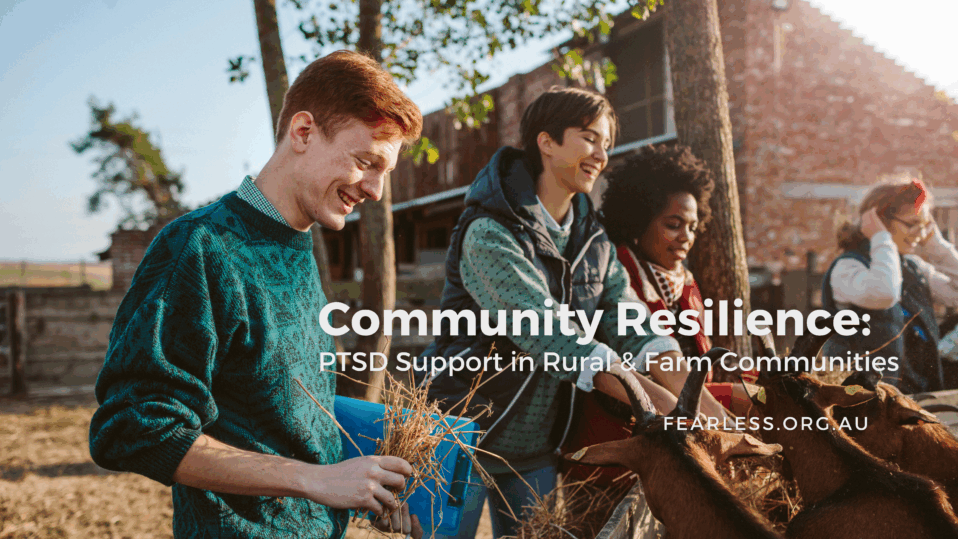Isolation, long hours, and natural disasters can make life in rural and farming communities uniquely tough. When trauma enters the picture, it doesn’t always look the same as it does in cities. It rarely gets the same support.
PTSD in rural Australia and New Zealand often goes unseen. The pressure to keep going, stay strong, and not talk about it runs deep. Add limited services, long travel times, and stigma, and it’s easy to understand why many people never reach out.
At FearLess, we want rural communities to know help is possible and accessible.
Why PTSD Hits Harder in the Country
Trauma can take many forms in regional life. It might come from a sudden accident on the farm, or years of compounding stress from drought, flood, or financial strain. For some, it’s the silence and isolation that follow.
Mental health services in rural areas are often few and far between. Even if you want to speak to someone, the nearest trauma-informed provider might be hours away. When the community is small, it can also feel like everyone will know if you ask for help.
What Support Can Look Like
- Our Getting Help page offers practical support for individuals and families dealing with post-traumatic stress.
• FearLess advocates for better access to services across regional Australia and NZ.
• You can also explore resources like Farmer Health, which focus on mental health in rural areas.
If in-person care isn’t possible, telehealth and online therapy options are increasingly available. They give people more choice about when and how they access support, especially when time or travel gets in the way.
A Quiet Strength
Rural communities are strong, but that doesn’t mean people don’t struggle. PTSD is real, and it deserves proper care whether you live in the city or on the land. Help is out there, and it can meet you where you are.
If you or someone you love needs support, start by exploring FearLess programs and services. You’re not alone in this.



Post a comment